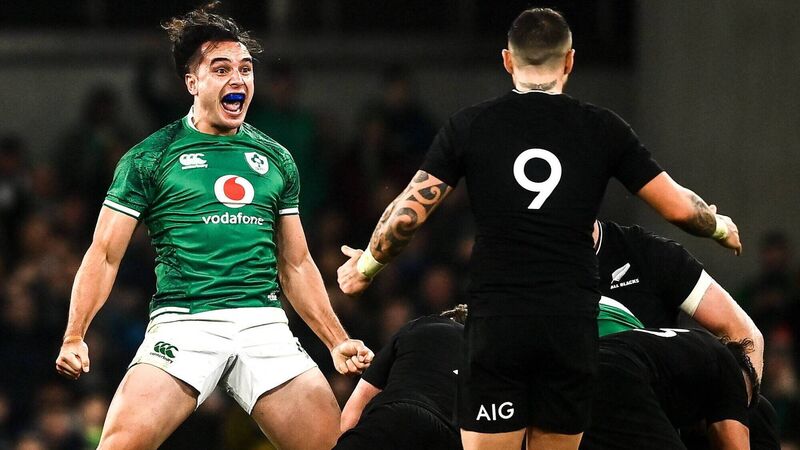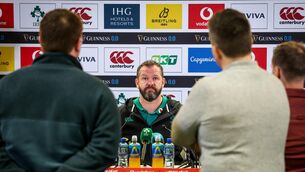Donal Lenihan: This was one of those magical sporting experiences that will stay with you forever

STAND AND DELIVER: James Lowe of Ireland celebrates a turnover against New Zealand at Aviva Stadium. Photo by David Fitzgerald/Sportsfile
Enjoyment first. Caveats later. The global pandemic has imposed sufficient restrictions to recognise that when something glorious unfolds before our eyes, that serves to lift the public mood and allows us feel good about ourselves, we need to accept it for what it is.
Matches that extend to over two hours due to incessant interaction between the referee and his TMO have bored the life out of us in recent times. Not on this occasion. Long after Luke Pearce blew the final whistle, nobody dared leave their seats. Even the vanquished New Zealanders were reluctant to depart the scene of a rare defeat, conducting a circumnavigation of the field — in the circumstances, you could hardly call it a lap of honour — in acknowledgment of their frenzied surroundings.













